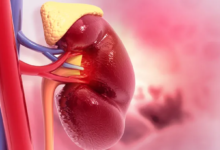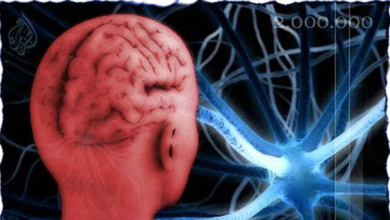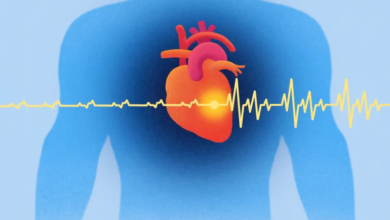Rising Cases of Gastrointestinal Diseases Among Young People: A Growing Concern

Gastrointestinal diseases, including colon cancer, are increasingly affecting younger individuals, a trend that was once rare for those under 50. The causes, which are sometimes genetic, remain unclear.
Hamza, 23, began suffering from ulcerative colitis at the age of 8, a chronic inflammatory disease affecting the large intestine and rectum, which later developed into Crohn’s disease. He recalls to Agence France-Presse, “I suffered from diarrhea, blood in my stool, and severe stomach pain, to the point where I could no longer stand.”
He continues, “During high school, I spent 60% of my school years either in the hospital or at home.” He adds, “I felt different from others, and was embarrassed about constantly needing to use the restroom.”
However, three years ago, thanks to effective treatment, Hamza regained weight, returned to exercising, and began working independently.
Dietary Adjustments
To alleviate his symptoms, Hamza adjusted his diet, reducing sugar intake and avoiding “fried foods, sodas, and all processed products,” opting instead for “vegetables, fish, pasta, and rice.”
Professor Serge Herkberg, a nutrition expert who previously headed the French Ministry of Health’s National Nutrition and Health Program, states, “We know that diet can influence the risk of developing colorectal cancer.” He notes that “there are many speculations,” such as early exposure to risk factors like chronic inflammation, carcinogens, highly processed foods, microplastics, and pesticides.
Hamza’s condition is monitored at the George Pompidou Hospital in Paris, part of a network of seven centers specializing in managing the risk of colorectal cancer, particularly in patients with genetic predispositions to such cancers.
The Importance of Early Detection
Professor Christophe Cellié, Head of the Hepatology and Gastroenterology Department at Pompidou Hospital, advises, “When someone experiences gastrointestinal symptoms like blood in the stool, recurrent stomach pain, anemia, and iron deficiency at a young age, they should not hesitate to consult a doctor and should not dismiss it as just hemorrhoids.”
He adds, “While colorectal cancer detected early can almost always be treated, many people do not feel comfortable discussing their symptoms, leading to some cancers being diagnosed late.”
A recent study by the French National Society of Gastroenterology found that more than one-third (37%) of individuals aged 25-34 avoid consulting a healthcare professional due to the fear of undergoing embarrassing procedures like a colonoscopy, which can detect and remove benign tumors before they turn malignant.
Cellié mentions, “In France, as in the United States and other countries, a small percentage of the population develops cancer before the age of 50, which is when regular screenings for colorectal cancer typically begin. We still don’t know the real reason for this.”
Global Trends in Rising Cancer Rates
Globally, the incidence of cancer among individuals under 40 has nearly doubled (+80%) from 1990 to 2019, according to a large study published in BMJ Oncology.
Ongoing Efforts to Understand the Causes
Professor Fabrice Barlesi, the Director-General of Gustave Roussy Cancer Institute near Paris, emphasizes that “a significant effort is still needed to better understand the causes.”
Colorectal cancer is one of six types of cancer—along with brain, kidney, and breast cancers—whose incidence has risen among adolescents and young adults in France between 2000 and 2020, according to a recent study by the French Public Health Agency.
Some cancers, which make up less than 10% of the total, are linked to genetic predisposition. As a result, these cancers are often detected earlier, allowing for the development of preventive strategies, such as starting colonoscopies at the age of 20, which can reduce cancer incidence by “70% of cases,” according to Cellié.








